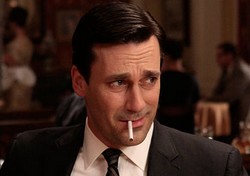James Fallows
seems to believe that people who have different interpretations of the effect of proposed health care reform are simply "invent[ing] facts."
The trouble is no one can know what the effect will be of any bill the government passes.
Take the Civil Rights Act of 1964. Critics opposed it because they said it would lead to racial preferences, quotas and forced busing. Supporters argued the doubters had it wrong--that the bill was specifically written to avoid these outcomes. And yet, in very little time, bureaucrats and judges were able to take the law and use it to justify what at least seemed to many like these very things.
No one can be sure how even a small law will work--we can only guess, and hope it works out. When a thousand-page law creating massive restructuring of a system is debated, it takes true arrogance to claim to know what it will ultimately amount to. After all, if people can't even agree on the interpretation before it's passed (and if John Conyers says you can't understand a bill even after reading it with a lawyer), why would anyone think all those people entrusted with carrying it out will agree with one "true" interpretation?
I know this is a cheap sort of argument. It sounds like I'm arguing against passing anything. Well, in a way, I am. I'm at least saying we should be wary of any potential law, and the bigger the law, the more skeptical we should be. The wording matters, certainly, but we have to look at past experience to guide our beliefs. And I think we can say whenever we give vast new powers and money to the government, it's certainly possible they will end up doing things we didn't want, and in ways we never imagined.
One question worth asking is what will government officials (now and in the future) do with their new power? If you claim some potential action will be stopped by a particular provision in the law, you should understand that's an argument that may mean it's less likely, but it's not decisive evidence it won't happen. At least look at what the rest of the bill is promising. For example, if the law has a "nothing shall be construed" clause it's probably because there's a fear that, in fact, that's how people will want to construe it. Ask yourself, once the money and the bureaucracy is set up, what's to stop them?
Fallows assures us there will be no "death panels," and that people who talk about them are irrational or dishonest. Where does he get his confidence? After all, the phrase has no technical meaning. Is he claiming under no circumstances at any time will there be two or more government officials conferring on any medical issue that could lead to a life or death decision? Cause that would suffice as a death panel. Even his caricature of a death panel--"The bill would not call people before panels to determine whether they had a right to live"--can't be entirely ruled out. Mind you, I don't think our future will look like
Logan's Run (if I was classy I'd say "The Lottery"), but the idea that it's unimaginable the government won't be allowed to make decisions that will determine who ends up living or dying is absurd. In fact, these very things have been discussed and debated at length by people who support health care reform. If there's going to be any rationing, for example, the government's going to have to make tough decisions. You'd think Fallows would argue we need reform to make these decisions wisely, not to claim these decisions won't ever be made.
So let's have a debate. But I'd suggest you think twice before calling people crazy because they believe the law might turn out differently from what you claim.



















